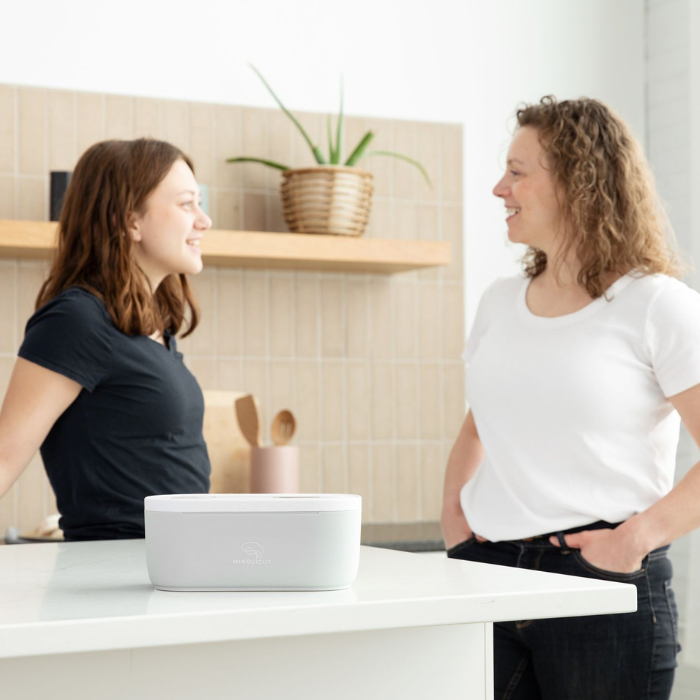In an age where digital devices are an integral part of our daily lives, the concept of disconnecting, even temporarily, can seem daunting. Yet, the constant connectivity to our phones and screens has a profound impact on our mental health, focus, and overall well-being. This article delves into the world of digital detox, highlighting the benefits of embracing phone-free periods and how tools like phone lock boxes can aid in this journey.
As we explore the challenges of constant connectivity, we’ll understand the role and functionality of phone lock boxes, the psychological benefits of digital detox, and practical tips for integrating phone-free periods into our daily routines. Through real-life stories and experiences, we'll see the transformative power of stepping away from our screens and how it can lead us to a more mindful, balanced life.
Ready to unlock the door to mindfulness and improved well-being? Let’s embark on this journey together.
The Challenge of Constant Connectivity
In the digital era, our lives are intertwined with technology in an unprecedented way. Smartphones, in particular, have become ubiquitous, serving as a gateway to a world of information, entertainment, and social interaction. However, this constant connectivity comes with a price.
Impact on Mental Health: Recent studies have highlighted the potential adverse effects of excessive phone use on mental health. The constant barrage of notifications, social media updates, and emails can lead to heightened stress levels and anxiety. The 'always-on' culture can disrupt our ability to focus, affecting our productivity and creativity.
Effect on Relationships and Social Skills: Smartphones can also intrude on our face-to-face interactions, often diminishing the quality of our relationships. The presence of a phone during conversations, even if not in use, can reduce the level of empathy and connection between people. Furthermore, excessive phone use can hinder the development of social skills, especially among younger generations.
Sleep Disturbances: The blue light emitted by screens is known to interfere with melatonin production, a hormone that regulates sleep. Using phones late at night can lead to sleep disturbances, impacting overall health and well-being.
Dependency and Habit Formation: Smartphones can foster dependency, a phenomenon often referred to as 'nomophobia'—the fear of being without a mobile phone. This dependency can become habitual, making it challenging to disconnect even when we consciously understand the benefits of doing so.
The Loss of Quiet Moments: Perhaps one of the most significant losses in the age of constant connectivity is the decline of quiet, reflective moments. Constant engagement with digital devices can drown out the time we need for introspection and relaxation, essential components of mental health and mindfulness.
Recognizing these challenges is the first step towards addressing them. In the following sections, we will explore the role of phone lock boxes and digital detox in mitigating these issues and enhancing our overall quality of life.
Understanding Phone Lock Boxes
In our quest to manage the challenges of constant connectivity, one solution that has gained popularity is the use of phone lock boxes. These simple yet effective tools provide a physical barrier between us and our digital devices, helping to enforce periods of disconnection.
What Are Phone Lock Boxes? Phone lock boxes are secure containers designed to hold smartphones and, in some cases, other small electronic devices. Their primary function is to help individuals and families set boundaries around phone use. By locking phones away for predetermined periods, these boxes encourage users to engage in other activities, free from digital distractions.
Types of Phone Lock Boxes There are various types of phone lock boxes available, ranging from basic models with a simple lock and key mechanism to more advanced versions featuring timers or app-controlled locking systems. Some are designed for individual use, while others are larger and can accommodate multiple devices, suitable for families or group settings.
Benefits of Using a Phone Lock Box The primary benefit of using a phone lock box is the promotion of digital detox. By physically removing the phone from immediate reach, it becomes easier to focus on other tasks, engage in face-to-face interactions, and enjoy uninterrupted personal time. This can lead to improved mental health, better sleep patterns, and stronger relationships.
Encouraging Mindful Usage Phone lock boxes also help cultivate mindfulness regarding our technology use. By setting specific times for phone access, we become more aware of our usage patterns and can make more conscious choices about how and when we engage with our devices.
Accessibility in Emergencies Most phone lock boxes are designed with practicality in mind. In case of an emergency, they can be quickly opened to regain access to the phones. This ensures that while promoting digital detox, safety and accessibility are not compromised.
In conclusion, phone lock boxes serve as a valuable tool in managing our digital consumption. They act as a reminder and a physical aid to help us break free from the hold of constant connectivity, allowing us to rediscover the joys of a life less digitally encumbered.
The Psychological Benefits of Digital Detox
In an era where digital devices are ever-present, the concept of a digital detox – taking deliberate breaks from electronic devices – is gaining importance. This practice, often facilitated by tools like phone lock boxes, has numerous psychological benefits.
Enhanced Mental Health Regular digital detoxes can lead to reduced anxiety and stress levels. Disconnecting from the constant flow of information and social media can provide mental space, allowing for relaxation and decreased feelings of being overwhelmed. This break from digital stimuli is crucial for mental rejuvenation.
Improved Focus and Productivity Without the constant interruptions of notifications and the temptation to scroll through social media, individuals often find an increase in their ability to concentrate. This heightened focus can lead to improved productivity and a better quality of work or study.
Boosted Creativity Stepping back from screens can also boost creativity. When we disconnect, we give our brains the opportunity to wander and daydream, which is an essential part of the creative process. This mental wandering can lead to new insights and ideas that might not surface in the midst of digital noise.
Strengthened Relationships Digital detoxes can improve personal relationships. By being fully present and engaged during interactions with others, without the distraction of a phone, we can build stronger, more meaningful connections. Quality time spent with family and friends becomes more fulfilling.
Better Sleep Quality Reducing screen time, especially before bed, can have a positive impact on sleep. The blue light from screens can disrupt our circadian rhythm and the production of melatonin, the hormone responsible for sleep. By disconnecting in the evening, we can foster a more restful and rejuvenating sleep pattern.
Greater Self-Awareness and Mindfulness Finally, taking regular breaks from digital devices can lead to greater self-awareness and mindfulness. It encourages us to engage more deeply with our surroundings and our inner thoughts, leading to a more mindful approach to life.
In summary, the psychological benefits of a digital detox are multifaceted, impacting everything from mental health to relationships. As we continue to navigate a world saturated with digital devices, finding time to unplug can be a key to maintaining our psychological well-being.






